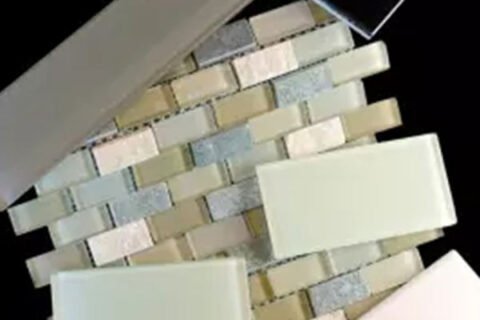Quartz vs Granite: How to Decide Which to Use for Countertops
When it comes to custom countertops, one of the most ubiquitous debates amongst homeowners is whether they should use quartz or granite. While both are excellent choices for kitchen or bathroom countertops, they possess distinct differences that should be taken into account before making a final decision.
Before deciding on where you stand in the quartz vs. granite debate, it helps to know how granite and quartz are made.
Granite countertops are 100% natural stone that is mined from quarries, cut to size, and polished to a fine shine. Quartz countertops, on the other hand, are only around 92% – 95% ground stone, while the rest is made up of polymer resins and coloring. The resins act as a binder to hold the ground quartz together, while the coloring is used to create consistency and match the countertops with surrounding decor.
In comparing quartz and granite, there are several factors to consider. Major factors include appearance, durability / maintenance, price, and environmental friendliness. Let’s take a look at each of these factors individually.
Appearance
Because they’re fully natural, quartz countertops are subject to imperfections and mineral inclusions. While some people see these natural flaws as adding character to the countertop, others find that it clashes visually with its surroundings.
Because they’re made of ground stone, quartz countertops have a more consistent appearance, and their coloring agents can offset any stark contrasts with the rest of the room. However, they do not present the stone in its natural state, which may come off as lacking authenticity to some homeowners.
Durability and Ease of Maintenance

Both quartz and granite offer superior durability to other countertop materials. Granite, however, is more porous than quartz, and requires sealing at installation and regular intervals throughout the life of the countertop. Without proper sealing, granite is subject to unsightly stains that can be very difficult to remove. It’s porous nature also makes it slightly more prone to high-impact damage.
Because it’s harder than granite, quartz is the more durable choice. Due to this, it is also less porous than granite, making it more resistant to stains and germs. Quartz countertops also do not require sealing, as the resins used during production act as a sealant.
One downside of using quartz over granite is that it’s less heat resistant; whereas a hot pan can safely be placed on a granite countertop (albeit against recommendation), a heating pad is required for quartz countertops. Failing to separate quartz countertops from intense heat can cause either discoloration of the resins or damage to the stone.
Both quartz and granite countertops are easily maintained, provided they are cleaned thoroughly and regularly. Quartz is slightly easier to maintain given that it does not require regular re-sealing.
Price
Granite and quartz are relatively similarly priced, making cost a non-crucial factor in the quartz vs. granite debate. Both are higher priced than other countertop options, as they are considered premium, high-quality materials.
High-quality granite and quartz countertops start at the same price point, around $80 per square foot. Depending on quality, granite can cost up to $175 / sq. ft. or more, whereas high quality quartz can be as high as $140.
When selecting granite or quartz countertops, the style, quality, and edging will have substantially more influence on the cost than the type of stone used. Because granite is a natural stone, some slabs are more flawed than others, making it the more affordable option in some cases.
Environmental Friendliness
As with their overall cost, the environmental impacts of quartz and granite countertops are about the same. While some may be inclined to peg 100% natural granite counters as being more environmentally friendly than quartz, it must be dug out of the Earth, whereas quartz countertops can be engineered from by-products.
Because it’s fully natural, granite countertop production emits less carbon emissions than quartz production, but the difference is negligible. The biggest environmental factor for both materials is transportation; both quartz and granite are usually shipped overseas. Homeowners can reduce the environmental footprint of their countertops by utilizing locally-sourced stone.
A Matter of Preference
At the end of the day, there really isn’t a substantial difference between quartz and granite countertops. What it comes down to is simply preference; some homeowners prefer the fully natural look of granite, while others prefer the diversity of quartz.
Rock Solid Custom Granite provides both custom granite and custom quartz countertops in a variety of styles, all using nothing short of the highest quality stone. If you’re ready to install or upgrade your kitchen or bathroom with quartz or granite countertops, contact us today!


